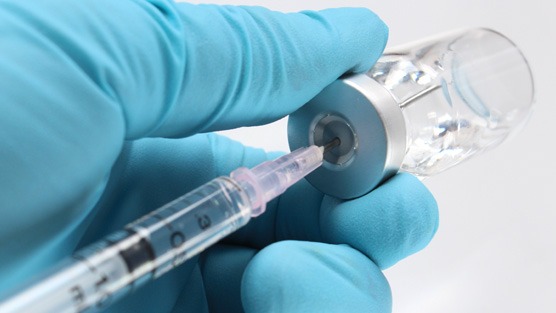Hormone Therapy for Cancer in Paris
Search and Compare the Best Clinics and Doctors at the Lowest Prices for Hormone Therapy for Cancer in Paris

Find the best clinics for Hormone Therapy for Cancer in Paris
No pricing info available
Thailand offers the best prices Worldwide
Price: $ 15
From 161 verified reviews
latifa Rabhi, 06 September 2020
Very fast support, with highly qualified and human staff.The rooms are beautiful and very quiet.Calm and gentleness in this hospital, I highly recommend.
WHY US?
At Medijump, we're making medical easy. You can search, compare, discuss, and book your medical all in one place. We open the door to the best medical providers worldwide, saving you time and energy along the way, and it's all for FREE, no hidden fees, and no price markups guaranteed. So what are you waiting for?

Free

Best Price

Widest Selection

Risk-Free
What you need to know about Hormone Therapy for Cancer in Paris

Hormone therapy (also known as hormonal therapy, hormone treatment, or endocrine therapy) is a cancer treatment that uses medicine to lower or block the number of hormones in the body to stop or slow the growth of cancer. The aim of the procedure is to treat cancer and ease cancer symptoms. The procedure is mainly used to treat breast cancer, ovarian cancer, womb cancer, and prostate cancer that use hormones to grow and is usually used along with other cancer treatments.
What does a Hormone Therapy for Cancer Procedure Involve?
Hormone therapy involves taking medication that prevents cancer cells from getting the hormones they need in order to grow, which may be given orally (in pills that you swallow) or injected into a muscle in your hip, thigh, arm, leg, or belly. Some frequently used hormone therapy drugs are abiraterone, anastrozole, exemestane, fulvestrant, letrozole, leuprolide, and tamoxifen. In some cases, your doctor may also remove the gland responsible for hormone production with surgery.
How Long Should I Stay in Paris for a Hormone Therapy for Cancer Procedure?
Your length of stay depends on how many cycles are needed for your specific case. During your hormone therapy, you will need to meet your oncologist regularly for follow-up visits to see how your body is responding to the medications.
What's the Recovery Time for Hormone Therapy for Cancer Procedures in Paris?
You may be able to resume your normal activities and work the next day after you receive the hormone medications or when you do not feel any symptoms that interfere with your ability to perform your daily activities. If you undergo surgery to remove the gland responsible for hormone production, you may need to take 4 weeks off work and avoid any strenuous activities, such as intense exercise, for 6 to 8 weeks.
What sort of Aftercare is Required for Hormone Therapy for Cancer Procedures in Paris?
Your doctor will give you aftercare instructions, which involve diet, exercise, and restrictions. You will need to attend regular follow-up checkups after your hormone therapy is complete to discuss ways of reducing and treating side effects as well as to watch for cancer recurrence.
What's the Success Rate of Hormone Therapy for Cancer Procedures in Paris?
Hormone therapy has been shown to reduce the risk of cancer recurrence if performed along with other cancer treatments. It is also effective way to put cancer patients in remission, however, the treatment has some side effect and risks, such as hot flashes, fatigue, nausea, joint or muscle pain, blood clots, cataracts, stroke, heart disease, osteoporosis, erectile dysfunction (in men), as well as vaginal irritation, vaginal discharge, and vaginal dryness (in women).
Are there Alternatives to Hormone Therapy for Cancer Procedures in Paris?
Other cancer treatments, such as surgery, immunotherapy, targeted drug therapy, and chemotherapy can be your alternative options. Discuss with your doctor the best choice for your specific condition.
What Should You Expect Before and After the Procedure
Cancer can prevent you from enjoying life and cause painful symptoms, and it can be life-threatening. After successful hormone therapy, you should be able to enjoy the things you love, your symptoms are relieved, and your life may be prolonged. Many patients are put in remission after treatment, meaning no cancer cells are found in their bodies.
Whilst the information presented here has been accurately sourced and verified by a medical professional for its accuracy, it is still advised to consult with your doctor before pursuing a medical treatment at one of the listed medical providers
No Time?
Tell us what you're looking for and we'll reachout to the top clinics all at once
Enquire Now

Popular Procedures in Paris
Prices Start From $714

Prices Start From $2,487

Prices Start From $95

Prices Start From $2,487

Recommended Medical Centers in Paris for Hormone Therapy for Cancer

- Interpreter services
- Translation service
- Religious facilities
- Medical records transfer
- Medical travel insurance
- Health insurance coordination
- TV in the room
- Safe in the room
- Phone in the room
- Private rooms for patients available

- Interpreter services
- Translation service
- Religious facilities
- Medical records transfer
- Medical travel insurance
- Health insurance coordination
- TV in the room
- Safe in the room
- Phone in the room
- Private rooms for patients available

- Interpreter services
- Translation service
- Religious facilities
- Medical records transfer
- Medical travel insurance
- Health insurance coordination
- TV in the room
- Safe in the room
- Phone in the room
- Private rooms for patients available

- Interpreter services
- Translation service
- Religious facilities
- Medical records transfer
- Medical travel insurance
- Health insurance coordination
- TV in the room
- Safe in the room
- Phone in the room
- Private rooms for patients available

- Interpreter services
- Translation service
- Religious facilities
- Medical records transfer
- Medical travel insurance
- Health insurance coordination
- TV in the room
- Safe in the room
- Phone in the room
- Private rooms for patients available

- Interpreter services
- Translation service
- Religious facilities
- Medical records transfer
- Medical travel insurance
- Health insurance coordination
- TV in the room
- Safe in the room
- Phone in the room
- Private rooms for patients available

- Interpreter services
- Translation service
- Religious facilities
- Medical records transfer
- Medical travel insurance
- Health insurance coordination
- TV in the room
- Safe in the room
- Phone in the room
- Private rooms for patients available

- Interpreter services
- Translation service
- Religious facilities
- Medical records transfer
- Medical travel insurance
- Health insurance coordination
- TV in the room
- Safe in the room
- Phone in the room
- Private rooms for patients available

- Interpreter services
- Translation service
- Religious facilities
- Medical records transfer
- Medical travel insurance
- Health insurance coordination
- TV in the room
- Safe in the room
- Phone in the room
- Private rooms for patients available

- Interpreter services
- Translation service
- Religious facilities
- Medical records transfer
- Medical travel insurance
- Health insurance coordination
- TV in the room
- Safe in the room
- Phone in the room
- Private rooms for patients available
Hormone Therapy for Cancer in and around Paris
About Paris
Paris is the capital and most populous city of France and it is the second-most visited country in the world and it is easy to see why. The city is considered as an international center of fashion, culture, art, and gastronomy. Its boulevards are lined with museums, world-famous monuments, classical bistros and boutiques, wine bars, and design shops that successfully captured the heart of its visitors. Besides a popular destination for leisure, Paris is also one of the leaders in Europe for medical tourism. Hospitals and clinics in the city are well-equipped and are able to perform all manner of medical treatments for international tourists. The doctors and nurses offer the highest level of care that is hard to rival.
Popular Parts of Paris
Paris is filled with iconic monuments with thousands of years of history. The most popular attraction of the city, as well as France’s symbol, is the Eiffel Tower. Visitors are allowed to climb as far as the 2nd floor via the south pillar’s 720 stairs or ride the elevator to the top. Besides the Eiffel Tower, visitors can stroll around the glamorous avenue des Champs-Élysées and admire Arc De Triomphe, admire the exquisite décor of Sainte-Chapelle, wander along the Seine, or try the city’s art nouveau cafes. Visiting Paris will never be complete without exploring its museums. One of the most popular is the Louvre, which is the biggest museum in the world with thousands of famous works, including the Mona Lisa.
Transport in Paris
Paris Charles de Gaulle Airport is the main international gateway to the city. It connects the city with almost every country around the world. Getting around Paris is easy as the city boasts one of the most efficient public transportation systems in the world. The metro subway system is extensive, generally safe, easy to use, and the trains usually arrive on time. The buses are spacious and affordable. There is also a commuter express (“RER”) train service that will take you to the city’s most important areas. Taxis are available and can be found easily.
Visas in Paris
France is a member of the Schengen Agreement, meaning citizens of 62 countries, including Singapore, the US, and Australia do not need a visa to enter and stay in the country for up to 90 days. Other nationals not listed in the visa-free entry should obtain and apply for a visa and always check at the nearest French embassy or consulate for the requirements.
Weather in Paris
Spring (March-May) has mild temperatures with a lot of rainy days. Summer starts in June bringing warm temperatures and sunny days. The average temperature during the summer is around 18°C. The temperature will slowly decrease in autumn (September – November), but the weather is still generally pleasant. Winter can be cold as the temperature drop to 4°C.
Additional Info
- Local Currency: The official currency is the euro. 1 EUR is approx. 1.12 USD.
- Money & Payments: ATMs are widely available. Debit and credit cards are accepted almost everywhere. Tipping can be mandatory in certain places.
- Local Language: French is the official language, but many people in tourist areas speak English.
- Local Culture and Religion: Paris has a diverse religion, with Christianity as the biggest. Other religions, such as Islam, Buddhism, and Judaism, are present.
- Public Holidays: Paris celebrates 11 official public holidays, including New Year’s Day, Easter Monday, Bastille Day, and Christmas Day.
Popular Searches
- Plastic Surgery in Thailand
- Dental Implants in Thailand
- Hair Transplant in Thailand
- Breast Augmentation Thailand
- Gastric Sleeve in Thailand
- Gender Reassignment Surgery in Thailand
- Laser Hair Removal in Bangkok
- Botox in Bangkok
- Dermatology in Bangkok
- Breast Augmentation in Bangkok
- Coolsculpting in Bangkok
- Veneers in Turkey
- Hair Transplant in Turkey
- Rhinoplasty in Turkey
- Stem Cell Therapy in Mexico
- Rhinoplasty in Mexico
- Liposuction in Mexico
- Coolsculpting in Tijuana
- Rhinoplasty in Korea
- Scar Removal in Korea
- Gastric Sleeve in Turkey
- Bone Marrow Transplant in India
- Invisalign in Malaysia
- Plastic Surgery in the Dominican Republic
- Tummy Tuck in the Dominican Republic
- Plastic and Cosmetic Surgery in Poland
- Rhinoplasty in Poland
- Hair Implant in Poland
- Dental Implants in Poland
- IVF in Turkey
